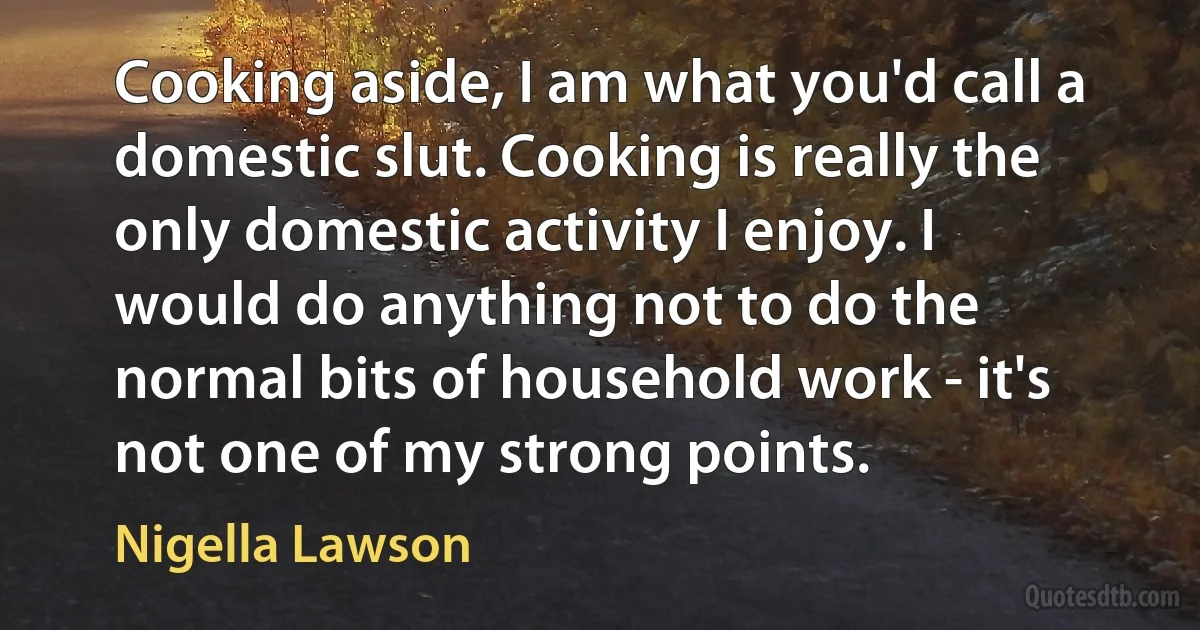Domestic Quotes - page 23
It is not the form of things that must be attended to but their spirit. The real is what matters, not the apparent. In politics, reality is that which is unseen. Politics is the art of combining a nation's diverse or opposing factors to the benefit of its domestic well-being, and of saving the country from the open enmity or covetous friendship of other nations.

José Martí
Mr. President, as we speak--as I am speaking on the floor of the Senate--in an act of stunning partisan politics, President Obama, the Commander in Chief of the U.S. Armed Forces, has decided he will veto the National Defense Authorization Act. He is choosing to hold our military hostage for a domestic political agenda, and he is doing so at a time when the crises we face around the world have never been greater, when U.S. leadership has never been weaker, and when our men and women in uniform need vital resources to defend and secure the Nation. As I said, in an act of stunning partisan politics, President Obama, the Commander in Chief, has decided he will veto the national defense authorization bill, and he is right now in the act of doing so--holding our military hostage for his domestic political agenda.

John McCain
I spend a lot of time with the men and women who are serving in the military, including members of my own family, and they are not uninformed. They are very intelligent. They watch what we do--we, their elected representatives. Their voters trust us to defend them, care for them, to give them the weapons they need, the benefits they need, and the care they need when the wounded come back. They rely on us. They are going to see, as we watch Vladimir Putin on the march, as we watch the success of ISIS, as we watch Ukraine being dismembered, as we watch China commit more aggression in the South China Sea and fill in islands--and now? Now this Commander in Chief decides that this is a time to veto an authorization bill because he doesn't think there is enough domestic spending. It is a sad day, a very sad day. It is a sad day for America but most of all it is a very sad day for the men and women with whom we entrust our very lives and our security. It is a sad day.

John McCain
Unjustified war and unconstitutional abridgment of individual rights, versus ill-conceived tax and economic policies -- this is the difference between venial and mortal sins. John McCain would continue the Bush administration's commitment to interventionism and constitutional over-reach. Obama promises a humbler engagement with our allies, while promising retaliation against any enemy who dares attack us. ... Based on his embrace of centrist advisers and policies, it seems likely that Obama will turn out to be in the mold of John Kennedy, who was fond of noting that "a rising tide lifts all boats." ... Even if my hopes on domestic policy are dashed and Obama reveals himself as an unreconstructed, dyed in the wool, big government liberal, I'm still voting for him.

John McCain
For the most trifling reasons, and sometimes for no conceivable reason at all, his majesty has rejected laws of the most salutary tendency. The abolition of domestic slavery is the great object of desire in those colonies where it was unhappily introduced in their infant state. But previous to the infranchisement of the slaves we have, it is necessary to exclude all further importations from Africa. Yet our repeated attempts to effect this by prohibitions, and by imposing duties which might amount to a prohibition, have been hitherto defeated by his majesty's negative: thus preferring the immediate advantages of a few British corsairs to the lasting interests of the American states, and to the rights of human nature deeply wounded by this infamous practice.

Thomas Jefferson
Our first priority is to stand with the President and our armed forces on the frontlines overseas, and to do all we can to protect the homefront against possible new acts of terrorism. But there is another challenge which also demands the best of all of us, and which I hope we can approach with a new bipartisanship. We must reinforce the nation on the homefront by meeting the great domestic challenges here with the same determination that we all have brought to the great challenge from abroad. Despite all the dangers and difficulties, we enter this period with extraordinary possibilities for progress.

Ted Kennedy
After long generations of trouble, persecution and hatred, England had at last won through to a period of domestic peace and individual freedom. It was not a period of avowed idealism; it was not a period of legislative reform. But neither idealism nor reform is the whole of life for men or nations. The vigour and initiative of Englishmen, at home and overseas, in all branches of human effort and intellect, were the admiration of Eighteenth Century Europe. The greatness of England in the Hanoverian epoch was made by men acting freely in a free community, with little help indeed from Church or State, but with no hindrance. The great art of letting your neighbour alone, even if he thinks differently from you, was learnt by Englishmen under Walpole, at a time when the lesson was still a strange one elsewhere. Some European countries have not learnt it to this day or are rapidly unlearning it again.

G. M. Trevelyan
We have already transgressed the limit of safety, and the present disorders of our time are but precursors of other and imminent dangers. The rudder of our ship has ceased to move obedient to the helm. We are drifting on the seething tide of business, each one absorbed in holding his own in the giddy race of competition, each one engrossed in immediate cares and seldom disturbed by thoughts of larger concerns and ampler interests. Even our domestic life has lost much of its former warmth and geniality.

Felix Adler
On the whole, it seems reasonable to hope that the practical character of our Teutonic cousins [Germany], together with their huge actual mass of domestic sorrows, will assist them to settle down into a mood of peace and goodwill. But whether they do or not, it is idle to apprehend that they have before them a career of universal conquest or absolute predominance, and that the European family is not strong enough to correct the eccentricities of its pecant and obstreperous members.

William Ewart Gladstone
I have ordered the flags at the Capitol lowered to half-staff in Officer Sicknick's honor. The sacrifice of Officer Sicknick reminds us of our obligation to those we serve: to protect our country from all threats foreign and domestic. May it be a comfort to Officer Sicknick's family that so many mourn with and pray for them at this sad time.

Nancy Pelosi
I boldly maintain that the principle of protection to domestic industry, meaning thereby legislative encouragement for purpose of protection-duties on import imposed for that purpose, and not for revenue, is a vicious principle. I contest the hon. Gentleman's assumption, that you cannot fight hostile tariffs by free imports. I so totally dissent from that assumption, that I maintain that the best way to compete with hostile tariffs is to encourage free imports. So far from thinking the principle of protection a salutary principle, I maintain that the more widely you extend it, the greater the injury you will inflict on the national wealth, and the more you will cripple the national industry.

Robert Peel
At present the fashion appears to have set in in favour of two very distinct styles. One is a very impure and bastard Italian, which is used in most large secular buildings; and the other is a variety of the architecture of the thirteenth century, often, I am sorry to say, not much purer than its rival, especially in the domestic examples, although its use is principally confined to ecclesiastical edifices. It is needless to say that the details of these two styles are as different from each other as light from darkness, but still we are expected to master both of them. But it is most sincerely to be hoped that in course of time one or both of them will disappear, and that we may get something of our own of which we need not be ashamed. This may, perhaps, take place in the twentieth century, it certainly, as far as I can see, will not occur in the nineteenth.

William Burges
Sei Shonagon feels modern, almost a proto-feminist in such a paternalistic age that women at court stayed, for the most part, silent and still and available indoors all their lives. She said much, and she said two electrifying things from the still darkness of her domestic prisons. She said them of course very much in her own way, but she said there were two things in life that were absolutely essential, and life would be unbearable without them: the sensuous body and literature. My crude summation would be sex and text. Both have the X factor. She said them with longing and her longing stayed with me.

Sei Shōnagon
In an age when national greatness depends not on numbers or on territory, but on intelligence, the development of intelligence is a duty the neglect of which will hazard our national position. In a day when thought, not force, is the ruler of mankind, and when in domestic government numbers are more powerful than wealth, it is of the most vital importance to the stability of our institutions that that thought should be sound and those numbers enlightened.

Robert Gascoyne-Cecil, 3rd Marquess of Salisbury
Governments around the world say they're engaged in a war against the coronavirus. [...] This kill-or-die idiom is more than casual rhetorical overkill. Many governments are symbolically but very deliberately calling, in this time of fear and uncertainty, for general conscription along military lines. This is so they can, while pointing to an insidious foreign enemy, aim their firepower against some of the most valuable institutions of domestic public life. They have been very successful so far.

Pankaj Mishra
We cannot leave our topic without saying at least a word about the domestic tyranny that is the inevitable accompaniment of war. The great Randolph Bourne realized that "war is the health of the State." It is in war that the State really comes into its own: swelling in power, in number, in pride, in absolute dominion over the economy and the society. Society becomes a herd, seeking to kill its alleged enemies, rooting out and suppressing all dissent from the official war effort, happily betraying truth for the supposed public interest. Society becomes an armed camp, with the values and the morale-as Albert Jay Nock once phrased it-of an "army on the march."

Randolph Bourne
I find it difficult to say whether the leadership's 'second echelon' could have preserved the German Democratic Republic. Helmut Kohl later told me he had never believed that Egon Krenz was capable of getting the situation under control. I do not know - we are all wiser after the event, as the saying goes. For my part, I must admit I briefly had a faint hope that the new leaders would be able to change the course of events by establishing a new type of relations between the two German states - based on radical domestic reforms in East Germany.

Mikhail Gorbachev
Nations are barbarian in their infancy but not savage. The barbarian is a proportional mean between the savage and the citizen. He already possesses no end of knowledge: he has habitations, some agriculture, domestic animals, laws, a cult, regular tribunals; he lacks only the sciences.

Joseph de Maistre



